By Randy Hain During my morning walk yesterday, I reflected on a question a podcast host asked me last week during our conversation on his show. He was curious about the most common mistakes I observe people in my network making regarding business relationships. I gave him my take on some common missteps and why I think people make them. For today’s post, I thought it might be more interesting (and helpful) to shift the focus to the positive side and share my take on practical tips to thrive in what others over the years have deemed the relationship economy.
The relationship economy flourishes when individuals prioritize collaboration, transparency, and value creation. Thriving in the relationship economy is all about understanding the importance of connecting with people and actively working to build and nurture those bonds. Instead of focusing on quick, transactional exchanges, it’s about creating meaningful interactions that help everyone grow and succeed together. Humans are inherently social beings, and our nature drives us to form and maintain meaningful relationships. However, the recent pandemic, coupled with an increasing reliance on digital communication, has disrupted these natural tendencies. As a result, many people are facing challenges in rebuilding and fostering healthy connections or have developed bad habits. How can we take meaningful steps to regain and strengthen these essential bonds?
10 Practical Tips for Thriving in the Relationship Economy
Embrace Your Unique Style
Understand your personality and leverage it to connect effectively. For instance, if you are an introvert or high-functioning introvert like me, focus on smaller, one-on-one interactions where you can feel comfortable and authentic. Tailoring your approach to what suits you best will enhance the quality of relationships you build. I built my network on the foundation of thousands of coffee meetings over the last thirty years.
Nurture and Invest in Your Network
Healthy relationships require continuous nurturing. Much like tending a garden, maintaining your network involves effort, follow-ups, and care. Keeping track of contacts, interactions, and opportunities as well as important dates and relevant personal information about this network ensures that your connections remain strong and reliable over time. Helpful tip: Always connecting on LinkedIn with people you meet can help make this tool your go-to resource for keeping up with what should be an ever-expanding network. Try to send your LinkedIn invitation within 24 hours of initial contact and always include a note with context about how you met them.
Optimize Your Time
In your busy schedule each week, dedicating regular moments to relationship building can make all the difference. Whether it’s a coffee chat, lunch meeting, drinks or dinner, utilizing these everyday opportunities to connect transforms routine moments into powerful interactions. If you do not intentionally schedule time to forge and maintain relationships, it is much less likely to happen. Integrating your relationship time around existing mealtimes is efficient, effective and just makes sense.
Focus on Their Convenience, Not Yours
When initiating new relationships, prioritize the convenience of the other person. Meeting them at a time and place that suits their schedule and geography shows respect and increases the likelihood of meaningful engagement.
Master the Basics
Courtesy, professionalism and gratitude never go out of style. Acknowledge the investment of time from the other party and reciprocate with timely follow-ups. A simple hand-written thank you note or email can leave a lasting impression. This in particular is a significant area of opportunity for today’s professionals.
Let’s Be Real
Meeting someone for the first time? Not sure what to say? Do you desire a meaningful conversation about real issues and not the usual surface or politically correct dialogue? Be transparent first. Get personal (with discernment). Be authentic. If you desire someone to open up to you, you should be open about your life first. In effect, this gives the other person “permission” to be open about topics outside of work if you take the first step in sharing. Sharing personal anecdotes or experiences invites others to engage beyond surface-level conversations, fostering trust and deeper understanding.
Make Consistent Deposits
View your network as participants in the “relationship economy” where consistent efforts to assist, support, and contribute create a reservoir of goodwill. If you are generous and consistently making deposits in these relationships without keeping score, it will ensure that if/when the time comes for you to seek help or collaboration, your relationships will likely be ready to support you. Unless you are a job seeker or struggling in some way as I describe in the best practice below, do not be surprised if you struggle to make a withdrawal from an “empty” relationship account.
Serve Others’ Needs
Focus on how you can assist others in achieving their goals. Place their interests first when possible. Being helpful and proactive in identifying their needs strengthens the bond and sets you apart as a valuable connection. It also greatly enhances the practice of making deposits mentioned in the previous best practice. Helpful reminder: The relationship economy is for EVERYONE, regardless of employment status or life situation. We should try to practice abundance (not scarcity) thinking and always look at helping and serving others as simply the right thing to do, regardless of what it gains us in the relationship. Job seekers, people seeking counsel, and others in need may just need our help and we should be willing to give and share in their hour of need without reciprocation. The good people we help will likely desire to help us one day in the future, but let that happen naturally in their good time without us ever asking for it.
Stay Curious
A sincere curiosity about others’ perspectives and experiences drives meaningful dialogue. By actively listening and asking thoughtful questions, you deepen your understanding and foster mutual respect. It also makes it a we conversation, and not just a me conversation.
Add Value
Ensure every people interaction leaves a positive impact. Whether offering advice, resources, connections or encouragement, contributing value solidifies your place in the relationship economy as someone who is dependable and resourceful. Gaining a reputation for adding value will attract people to you and enhance the growth of your network.
I have long been a keen student of the essential tactics that are critical for building effective business relationships, both inside and outside our organizations. Nothing gets better simply because we wish it, and this certainly applies to how we approach relationships in the business world. There are no magic answers and few shortcuts to being great at relationship building. Improvement takes hard work, self-discipline, intentionality, and commitment. It takes a willingness to change old habits and develop new approaches. Also, it takes the recognition that sometimes focusing on the basics and embracing simplicity often work best.
Thriving in the relationship economy is about more than just exchanging favors; it’s about creating a legacy of trust, collaboration, and mutual support. By weaving together authentic connections and staying committed to investing in others in a selfless way, you build a network that not only sustains but also enriches your life and career. One more thing…everything in this post also applies to remote and global professionals who need to connect virtually with limited opportunities to meet in-person.
I hope this is helpful!
Good luck.








